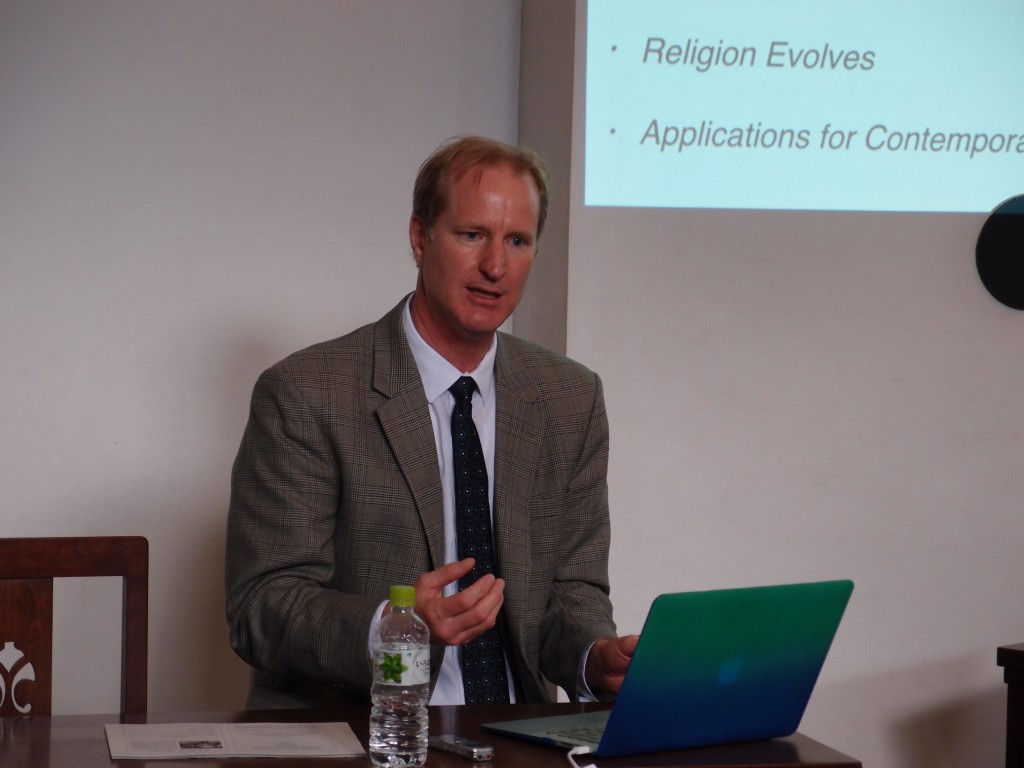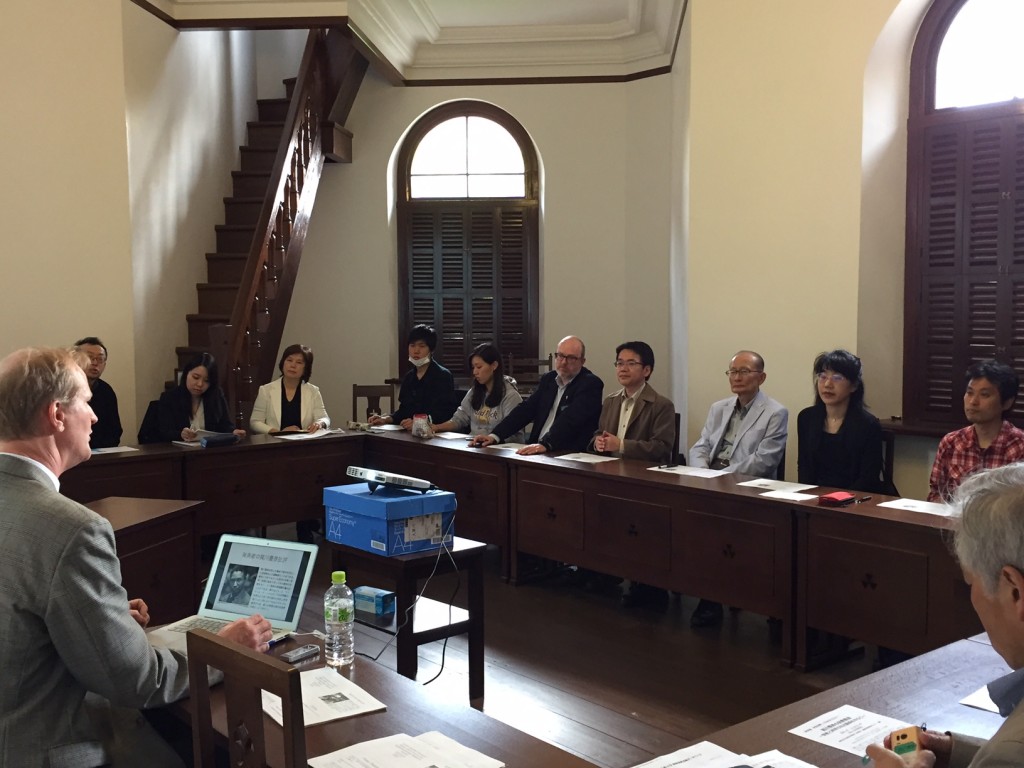Center for Interdisciplinary Study of Monotheistic Religions(CISMOR)Doshisha University
> Public Lectures > 【For Students and Academics】Toyohiko Kagawa’s Concept of Religion: With a Focus on the Relationship between Religion & SciencePublic Lectures
10th CISMOR Seminar
【For Students and Academics】Toyohiko Kagawa’s Concept of Religion: With a Focus on the Relationship between Religion & Science
| Date: |
2017/04/25 15:00-16:30 |
|---|---|
| Place: | Room CL25, Clark Memorial Hall, Imadegawa Campus, Doshisha University |
| Lecture: | Stig Lindberg (Assistant Professor, Center for Applied Philosophy & Ethics, Graduate School of Letters, Kyoto University) |
| Summary: | |
|
In many ways Toyohiko Kagawa was a thinker and activist ahead of his times. Although Asian, he was familiar with western religion, philosophy and science, and formulated an independent cosmology at the intersection of east and west. Kagawa can be seen as a philosopher of metaphysics who closely analysed the material world, or even as a particular kind of contemporary natural theologist. There were three themes in Kagawa’s concept of religion: firstly, that religion and science cover different epistemological territory but have a complementary relationship; secondly, that religion is by nature evolutionary; and finally, that this ‘evolutionary religion’ he proposed is essentially Paul’s theology of growth into the stature of Christ. Professor Lindberg suggested several sub-themes for these three topics, such as Kagawa’s cosmology, religion for Kagawa, criticality of self-knowledge, religion and science, faith versus fact, the evolution of religion and the application of contemporary theology. He introduced a few of these sub-themes. Firstly, ‘Kagawa’s cosmology’. According to Kagawa the phenomenal world began with matter, and later evolved into life which developed a consciousness. Matter is the self-expression of an embodied God, and therefore not ‘other’ as in the ex-nihilo interpretation of Genesis. Because of its origin in the divine, matter longs for (re)union with its source. However, because of its inferior status, the phenomenal world (‘creation’) requires divine intervention. This intervention is religion, as embodied in Jesus Christ. Next, we turn to what religion meant for Kagawa. His understanding of religion is expressed in various ways, but perhaps the most fundamental expression is man’s response to his awareness (cognition) of transcendence and entirety. It is an awareness that each individual is part of a larger entity/project, like a cell which has a life of its own but forms part of an organ, in other words serving a greater purpose. Kagawa refers to this awareness as collective responsibility (rentai sekinin) and stresses that Jesus was the first person in history to appreciate this and to identify it as the peak of evolved consciousness in man. Religion is not simply a secure way of understanding eternal time, limitless space or the problems that life is filled with. In other words, religion is a more fundamental thing than morality, and aims at focusing on the entirety of life. With regards to ‘criticality of self-knowledge’, why was self-knowledge so important for Kagawa and his understanding of religion? This is because it is the self which sees and interprets God, and therefore understanding the self is the first step in freeing one from an erroneous and damaging understanding of God. Kagawa recognised science’s preeminence in society and its power to contribute value to society, while lamenting religion’s corresponding marginalisation. He asserted that religion is life itself, and therefore that trying to detach it from science was foolish. Religion is a movement of value creation, evaluation, preservation and restoration. Finally, the complementarity of ‘Religion and Science’. Science is a particularly useful way to discover God. However, even before we used science to search for signs of God, God knew us and was communicating with us through our consciences. Religion owes something to science, which can purify religion and transform it into a holy art. Conversely, religion serves to remind science of its roots in human subjectively. Science and religion are not distinguishable domains; they collaborate to give substance to our lives. Science studies the outer domain of life and the structure of the universe, while religion studies the inner domain of life and how it should develop. There was a lively question and answer session around Professor Lindberg’s thoughts on Toyohiko Kagawa’s work. Translatede by Masaki Nagata |
|
|
20170425poster |
|

